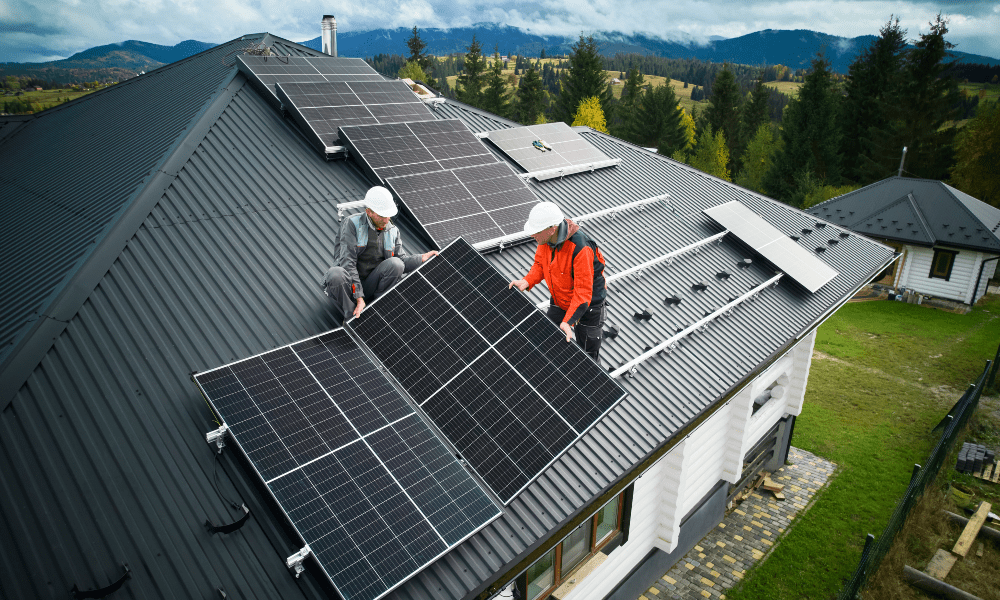The White House has announced that under the guidance of President Joe Biden and Vice President Kamala Harris, the federal government will convene for the first-ever climate resilience summit. The summit, while touching upon multiple aspects of climate resiliency throughout the United States pays special service to the built environment and how it factors into a proposed National Climate Resilience Framework.
To date, the federal government states there have been 23 separate billion-dollar weather and climate disasters – more than any other year on record – which includes damage from rising sea levels, changing precipitation patterns and wildfires.
The Summit will include representatives from more than 25 states, territories, and Tribal Nations in an attempt to underscore the Administration’s commitment to solutions that will both dramatically reduce greenhouse gas emissions and better manage climate threats.
As part of this strategy, the administration has noted the particular importance of local, community-driven strategies, as well as the role the built environment plays in the proposed National Climate Resilience Framework.
This Framework, quoting a White House press release, is meant to serve as “a vision for a climate resilient Nation designed to guide and align climate resilience investments and activities by the federal government and its partners.”

The Future of Digital Lighting & Control
As a custom integrator, lighting is in demand. Effective communication, education and showcasing the value proposition of LED light fixtures in conjunction with integrative control systems are the keys to overcoming challenges and closing sales in this specialized market. Join us as we discuss the future of digital lighting and control with David Warfel from Light Can Help You and Patrick Laidlaw and Mark Moody from AiSPIRE. Register Now!An Overview of the National Climate Resilience Framework
The Framework identifies common principles and specific actions to expand and accelerate progress towards six objectives:
- Embed climate resilience into planning and management.
- Increase resilience of the built environment to both acute climate shocks and chronic stressors.
- Mobilize capital, investment, and innovation to advance climate resilience at scale.
- Equip communities with information and resources needed to assess their climate risks and develop the climate resilience solutions most appropriate for them.
- Protect and sustainably manage lands and waters to enhance resilience, while providing numerous other benefits.
- Help communities become not only more resilient, but also more safe, healthy, equitable, and economically strong.
This framework will also provide roughly $500 million in dedicated funding to various initiatives.
A Summary of Resources Made Available for Contractors via the Framework
For contractors operating within the built environment, the framework comes with a variety of initiatives specifically impacting their work in the space. In transitioning to a Zero Emissions sector, the Department of Treasury issued guidance on the new 45L energy efficient home tax credit.
This offers up to $5,000 for eligible contractors working on updating homes to meet EPA Energy Star Certification and DOE’s Zero Energy Ready Homes Certification. This tax credit can also be used in conjunction with funding being given to states for projects that aim to reduce utility bills, increase efficiency, lower greenhouse gas emissions, and overall increase building resiliency to climate disasters.
Alongside the new tax credit, the Department of Energy has awarded $167.7 million across 11 states, 2 territories and 20 Tribes to update the electric grid to support ongoing climate and electrification initiatives.
The Federal Emergency Management Agency (FEMA) and multiple other federal agencies have also released their own guidance and best practices for implementing the latest consensus-based codes and above-code standards to achieve climate resilience and greenhouse gas emissions buildings.
FEMA best practices can be found in the National Initiative to Advance Building Codes.
For additional information on other initiatives the federal government will be taking in relation to advancing climate resiliency, the full press release on the subject can be found here.
If you enjoyed this article and want to receive more valuable industry content like this, click here to sign up for our digital newsletters!









